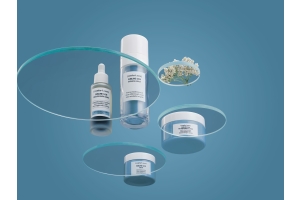The best anti-aging skincare routine can only be achieved with a strong understanding of one’s skin type. Among these skin types, there is one that is sometimes hard to identify correctly: sensitive skin.
Having sensitive skin isn’t always easy. Your skin might easily react to the products you’re using, causing dryness, rashes or even breakouts. Many people have skin that’s on the sensitive side, and you can thankfully find great products to soothe your skin. Here’s everything you need to know about sensitive skin and how to adapt a skincare routine.
What Is Sensitive Skin?
Generally speaking, sensitive skin is simply skin that reacts easily to other things. It’s not a condition in itself and can be mistaken for other things. Sensitive skin will often be an indication of another problem. Symptoms of sensitive skin include:
· Redness that could come with some swelling
· Sensation of burns or stings on the skin
· Rashes and hives
· Very dry skin that might blister, crack or even bleed
· Skin that feels extremely hard and dry
What Causes Sensitive Skin?
Sensitive skin can be caused by a genetic predisposition that makes your skin more likely to react to certain things. It could also be an indication of a skin condition.
There are three main types of sensitive skin: irritant contact dermatitis, which is the most common, allergic contact dermatitis, and eczema. Among the most likely triggers of a reaction are fragrance and preservatives in beauty products, as well as exposure to heat and hot water. Many components in hand sanitizer, solvents, laundry detergent, and other products that come in contact with the skin can create some form of irritation.
If your skin constantly reacts, you should contact your doctor to identify the triggers better and rule out specific allergies.
What Do Dermatologists Recommend for Very Sensitive Skin?
If you have sensitive skin, the best thing to do is avoid what triggers reactions. For example, you should avoid hot showers and use warm water.
It would be better to avoid wearing perfume and fragrances, including fragrances found in beauty products and laundry detergent. Instead, look for sensitive skin products advertised as such.
Ideally, look specifically for skincare for sensitive skin labelled as such for all your routine elements. This means face cleanser, moisturizer, and toner. You can also look for sunscreen that works well with sensitive skin.
Moisturizing your skin during the day can help soothe the irritations.
What Is the Best Skin Routine for Sensitive Skin?
To create a suitable skincare routine, you’ll first need to use dermatologist-recommended skincare products for sensitive skin. You’ll also have to avoid products that contain alcohol, fragrance, and anything that makes you react.
You’ll also want to simplify your routine. Sensitive skin can react to many different ingredients, and new products can trigger a reaction. Keep it simple!
Cleaning the skin: Make sure you remove any makeup, as leftover products could cause problems. Use a gentle cleanser that doesn’t have any fragrance. One that contains ceramides or hyaluronic acid could be a great option. Make sure to use lukewarm water instead of hot water.
Using a toner: A good toner will soothe your skin, reduce inflammation, and help give it extra hydration.
Applying a gentle face moisturizer for sensitive skin: This is an essential step in your routine. During the day, you could use a lighter face cream and a richer one at night. Look for products that are hypoallergenic and non-comedogenic. A good rule of thumb is to choose a fragrance-free moisturizer with a short list of ingredients.
Protect your skin with sunscreen: Sunburns are no joke, and they’re even worse for people with sensitive skin. Use a broad-spectrum sunscreen with SPF30, at least. Put it on in the morning, after moisturizer. If you stay outside during the day, reapply every two hours. Sunscreen containing zinc oxide might have a soothing effect on sensitive skin.
Indulge in a face mask: Masks are another excellent option for sensitive skincare routine products. Once a week, a hydrating and calming mask can help reduce redness and inflammation. Choose the ones made with soothing ingredients such as aloe and oats.
Soothe Your Skin for a Sumptuous Glow
Sensitive skin can be managed by only using sensitive skin products for your face and adapting your routine. Avoid common triggers such as fragrance and hot water, and you’ll start to see results soon. If the symptoms don’t go away or you suspect an allergic reaction, make sure to schedule an appointment with your doctor.







Enter the email associated to your BeautySense account and we'll send you a link to reset your password.